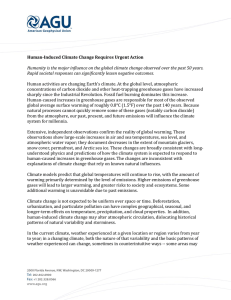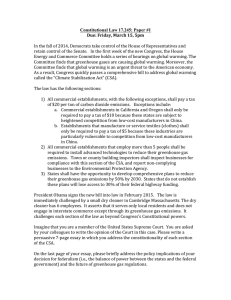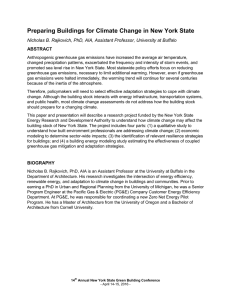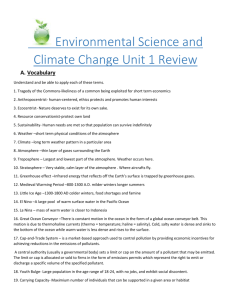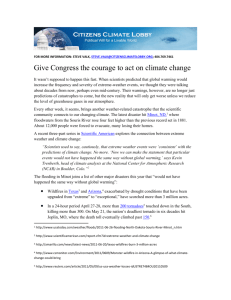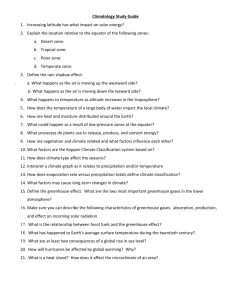Dear Honorable Members of Congress:
advertisement
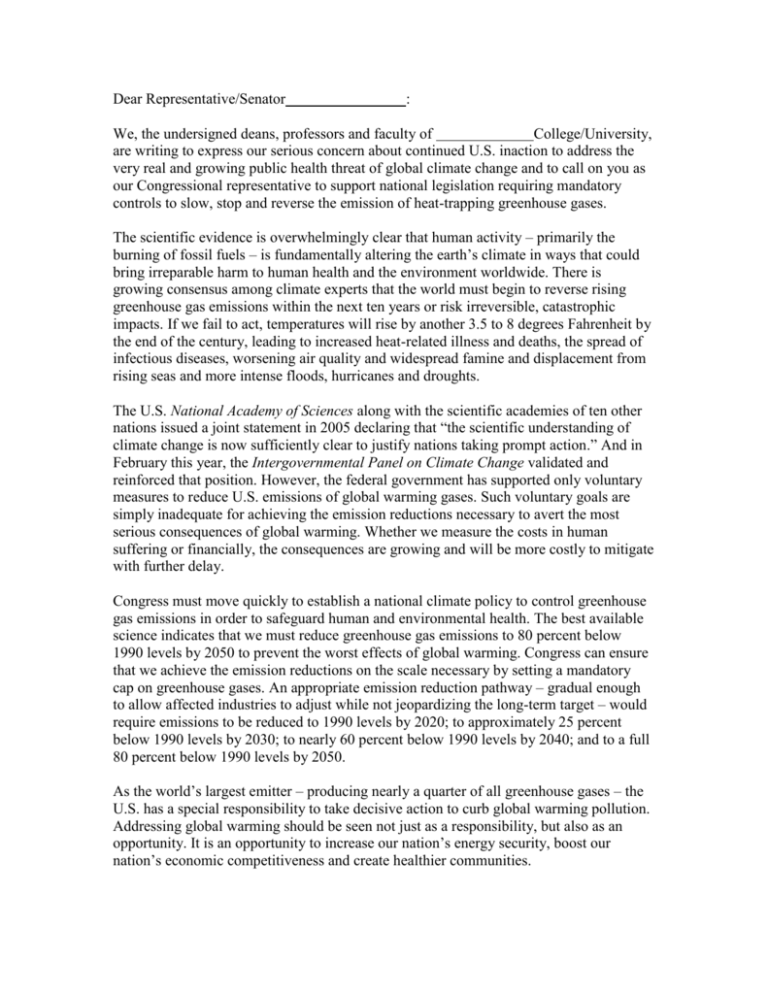
Dear Representative/Senator : We, the undersigned deans, professors and faculty of College/University, are writing to express our serious concern about continued U.S. inaction to address the very real and growing public health threat of global climate change and to call on you as our Congressional representative to support national legislation requiring mandatory controls to slow, stop and reverse the emission of heat-trapping greenhouse gases. The scientific evidence is overwhelmingly clear that human activity – primarily the burning of fossil fuels – is fundamentally altering the earth’s climate in ways that could bring irreparable harm to human health and the environment worldwide. There is growing consensus among climate experts that the world must begin to reverse rising greenhouse gas emissions within the next ten years or risk irreversible, catastrophic impacts. If we fail to act, temperatures will rise by another 3.5 to 8 degrees Fahrenheit by the end of the century, leading to increased heat-related illness and deaths, the spread of infectious diseases, worsening air quality and widespread famine and displacement from rising seas and more intense floods, hurricanes and droughts. The U.S. National Academy of Sciences along with the scientific academies of ten other nations issued a joint statement in 2005 declaring that “the scientific understanding of climate change is now sufficiently clear to justify nations taking prompt action.” And in February this year, the Intergovernmental Panel on Climate Change validated and reinforced that position. However, the federal government has supported only voluntary measures to reduce U.S. emissions of global warming gases. Such voluntary goals are simply inadequate for achieving the emission reductions necessary to avert the most serious consequences of global warming. Whether we measure the costs in human suffering or financially, the consequences are growing and will be more costly to mitigate with further delay. Congress must move quickly to establish a national climate policy to control greenhouse gas emissions in order to safeguard human and environmental health. The best available science indicates that we must reduce greenhouse gas emissions to 80 percent below 1990 levels by 2050 to prevent the worst effects of global warming. Congress can ensure that we achieve the emission reductions on the scale necessary by setting a mandatory cap on greenhouse gases. An appropriate emission reduction pathway – gradual enough to allow affected industries to adjust while not jeopardizing the long-term target – would require emissions to be reduced to 1990 levels by 2020; to approximately 25 percent below 1990 levels by 2030; to nearly 60 percent below 1990 levels by 2040; and to a full 80 percent below 1990 levels by 2050. As the world’s largest emitter – producing nearly a quarter of all greenhouse gases – the U.S. has a special responsibility to take decisive action to curb global warming pollution. Addressing global warming should be seen not just as a responsibility, but also as an opportunity. It is an opportunity to increase our nation’s energy security, boost our nation’s economic competitiveness and create healthier communities. Representative/Senator , we ask you and your colleagues in Congress to seize this opportunity by enacting legislation immediately to slow, stop and reverse the emission of greenhouse gases. Sincerely,

